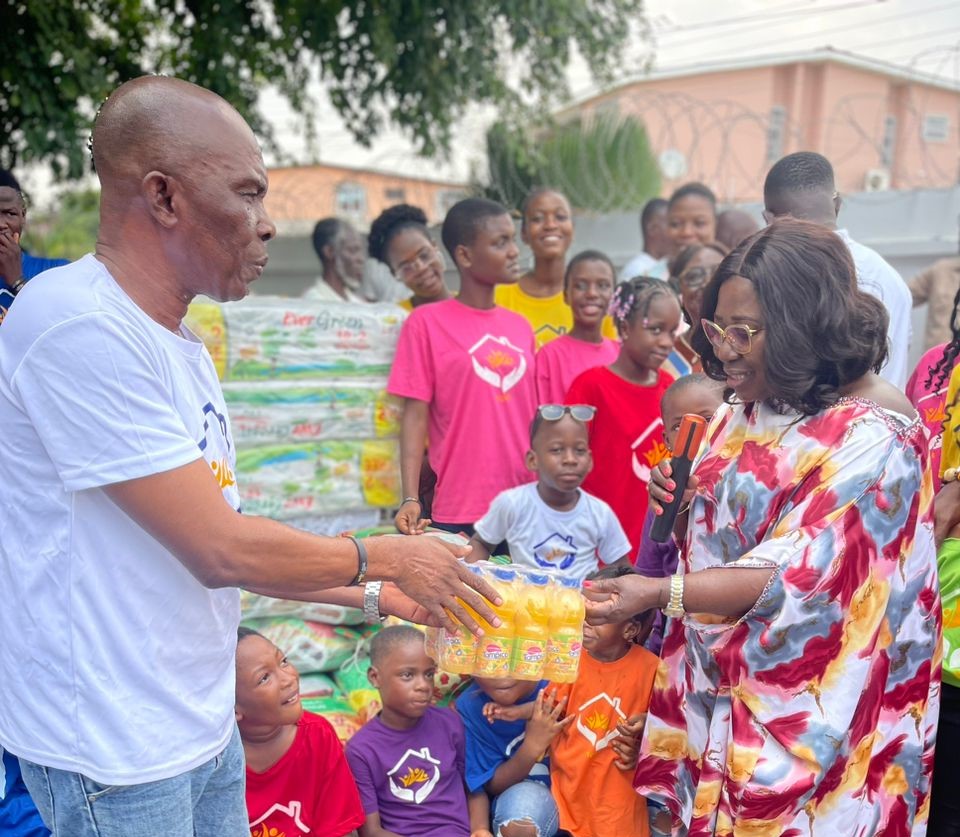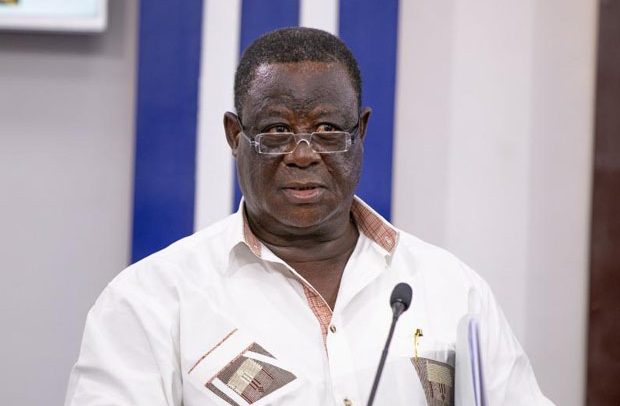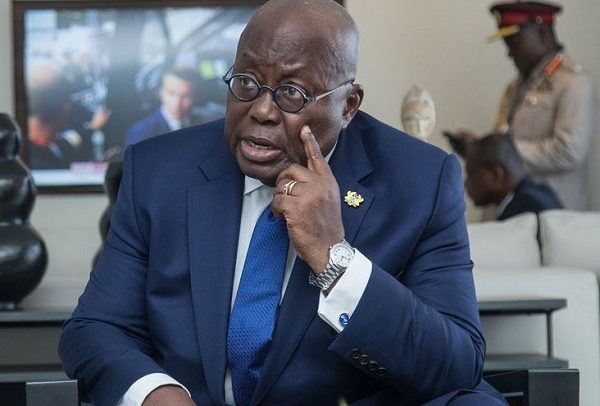
The Konkomba Community Chief of Accra, Ubor Abraham Bio, has called for unity among youth of the Northern communities living in urban centres, particularly, neighbourhoods in Old Fadama, to put communal peace and unity first on their agenda as human beings and citizens living and working in Accra, to improve their lives and support their less fortunate relatives back home in the poverty-stricken communities up North.
The 72-year-old ruler, who is credited with leading the founding of the Konkomba community in Old Fadama, Accra, with the support of metropolitan authority officials and traditional rulers of Accra, noted that Old Fadama today, has thrived into a buoyant business centre, because pioneers like him put God first as the source of peace and unity.
He explained that that vision of a united and peaceful settlement, in which ordinary citizens and fellowmen can conduct lawful business activity, was the reason why, even though Konkombas were the first Northerner communities that settled at Old Fadama, trading predominantly in yams, they were magnanimous enough to accept other Northerner communities and people as brothers and sisters from the North as the days went by.
The traditional ruler paid glowing tribute to peers like the late Alhaji Maikankan, businessman and sports administrator, who also a community light and pioneer settler, saying Northerner settlers in Old Fadama, particularly, the youth who are looking for role models, need not look far in emulating the businessman who overcame huge obstacles to excel in business.
He pointed out that this gesture of peace among Northerner communities, which he and contemporaries promoted and symbolised, must be appreciated by all stakeholders of development and governance, cautioning that a departure from that vision of unity, will only disorganise the future of Northerner youth in the Agbogbloshie, Galloway and Timber Market neighbourhoods of Old Fadama, in their common quest for fulfillment in a controversial environment.
Ubor Abraham Bio, also known as Blackie, made the call in a chat with The Chronicle at his New Gbawe residence in Accra early this week.
Communal peace
He also lamented over the tendency of the youth and communal leaders from the North to resort to violence at the least provocation, as a means of resolving misunderstandings, asserting that it is only tolerance and forgiveness, based on divine principles and civility, that peace and development can be fostered. In his view, these solid ingredients are pillars that the Northern communities need to depend on to improve their lot culturally, economically and socially.
"We must not lead in snatching ballot boxes, or involve in multiple registration and voting, as well as playing bad boys as thugs in politically-motivated violence, he pleaded, saying their children and grandchildren should be aware that the regal blood that flows in others in non-Zongo and non-Northerner communities are the same blood that flows in Northerner youth in Old Fadama and the Zongos.
He was also sad that the youth and clan heads in their communities allow themselves to be driven and ruled by juju and deities, who, according to him, abandon their children when they the juju/deities themselves face stiff opposition that they sometimes are unable to deal with. In a revealing statement, he said: "Those of us who know, and saw the Konkomba-Nanumba War, for instance, have enough experience to warn our children that juju has limits and can disappoint its adherents, when one least expected disappointment."
Continuing, his peace and unity liturgy, he admonished every Northerner living and working in Central Accra or Old Fadama, for that matter, to understand that peace is key to the survival and development of communities from the North, in the same manner that "every sick individual must understand that peace around him is key to his recovery as an ailing individual."
Konkombas and Nanumbas, he said, have a duty to respect the sanctity of communities, markets and public places, the same way Andanis and Abudus need to build bridges of peace wherever they find themselves. He further insisted that posterity will judge the present crop of political, religious and traditional leadership in the Northern communities, if they failed to alert the current and future generations about the need to build bridges of peace and reconciliation in promoting development in their communities, and the nation at large.
Foot soldiers' excesses
The traditional ruler also lamented the tagging of Old Fadama as a flashpoint during electioneering campaigns, saying that whilst that may be so, only the youth who play roles as foot soldiers can redeem their image, being those with high stakes in the future.
As a community head, however, he would wish that political parties with equal stakes in the area mutually agree to lower their party flags in the Old Fadama part of the business district, since it is the only segment of the district that has party flags flying freely at state markets. According to him, that picture is like having the Ministries, Police Service, Ministry of Defence and other such state facilities draped in partisan colours. "That will be a sure recipe for chaos," he predicted, pointing out that customers who come to buy yams or onions do not come in party T-shirts to buy from party onion dealers."
A better way, he said, is for the youth - whether you are Konkomba and Nanumba or Dagomba and Gonja - is to identify your needs as a united community with an economic and social stake, and advocate for improvement in the provision of basic amenities and social protection programmes that ordinary citizens, including communities from the North, clamour for, as a matter of right.
According to him: "Allowing politicians to pit you against your brother is not the best way to develop or improve one's life and plan his future," reminding the Old Fadama police that, as watchmen of the various communities in Old Fadama, they are duty-bound to control weapons in the area and manage gangster activity, so that a peaceful environment is maintained in promoting economic activity and communal development.
"We don't have to sacrifice the lives of our sons and daughters and the future by our insistence of getting our pound of flesh. We need to forgive each other and move on, particularly, when we meet on the market and in the Zongos," he pleaded.
He advised political parties that, instead of abusing the youth in festering violence, they could train them and get them to identify gaps in areas where development is lacking, so that interventions could be made. Alternatively, they could be trained to blow the whistle on activities of anti-criminal elements, in keeping the peace in communities and neighbourhoods.
The SADA Tragedy
Ubor Abraham Bio also commented on the failed erstwhile Savannah Accelerated Development Authority (SADA), which, he said should have brought lasting hope and enduring promise to the communities and peoples in the three Northern regions, particularly, had the politicians and managers of the authority lived up to expectations.
He was, again, however, sad that fellow Northerners, who knew more than anyone else the level of dehumanising poverty in communities up North, had the impunity to abuse the programmes under the authority for personal profit, saying, such people would forever bear the guilt of the wicked acts they perpetrated against the people and communities in the Northern Regions.
"I'm particularly worried, because, traditionally, we 'Northerners' run agrarian economies - crop and livestock. Indeed, every family up North farms or is engaged in livestock activity. The impact would, therefore, have been remarkable, had the organisers been more prudent and less inhuman... but that is lesson for the incoming administration - not to repeat that mistake in the future. The SADA of today and the future should have little excuse revamping agriculture in the Northern regions, in line with the regions' traditional status as a leading bread basket of the nation."
Read Full Story

























Facebook
Twitter
Pinterest
Instagram
Google+
YouTube
LinkedIn
RSS